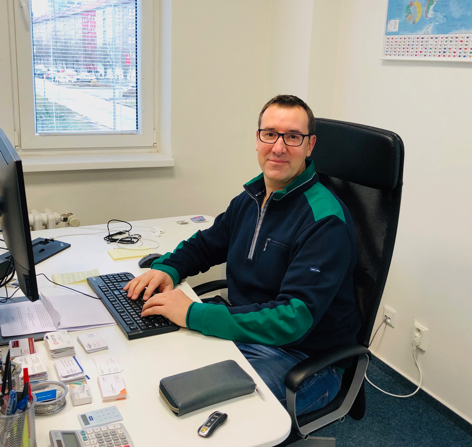Apelby now has its offices in key global markets. From a global perspective, the same products are offered in telecommunications services, but the specificities of the markets are different. We have prepared a mini-series of articles for you in which we ask Apelby's regional managers for their views and experience from the markets where they operate. The scope will be wide, as Apelby operates not only in Europe, America and the Middle East, but also in Asia and Africa.
Today we asked Christophe Erny, Sales Director for the African market about the specifics of his market.
Christophe, you are currently working on the Africa market for Apelby since November 2018 but you know this market since many years. What are the main transformations happened in these last years in your opinion?
Mobile broadband and shrinking smart phone prices have led to a rapid growth in Internet usage in Africa.
Mobile Internet requires limited skills, it does not necessitate power at home and is also prepaid, all the key factors for the use by African population, especially by the low-income groups, representing the largest part of these customers.
As consequence, Africa has seen the arrival of Over-the-Top (OTT) players, creating a numerous challenge for telecom operators, cannibalizing their voice and SMS revenues while operators need to invest even further in infrastructure.
An additional threat for them who were already suffering from the Bypass and/or SIM Box fraud, fraud estimated to over $38 billion, representing, in percentage, to 3 to 6% of the operators’ revenues.
Which are the most popular Apelby services in this market?
Over the years, Apelby has successfully positioned itself as a strategic Partner from operators on this Continent.
Our flexibility, adaptability and market understanding (Apelby has today 2 offices in Zambia and Tanzania as well as representations in Ghana, Sudan, Senegal Mauritius and Mauritania), has contributed to better assist the operators by understanding and answering to their needs, from antifraud, market protection to building regional and international corridors.
In addition to the above, due to the market pressure, some operators tend to re-focus on their core business which is the Retail and so, are looking at partners such as Apelby to outsource their international voice activity.
What are the most important opportunities on the African market in your view?
Unlike any other telecoms market on the planet, the nations of the African continent present an abundance of unique challenges and opportunities.
Stuck up between the shareholders expectations and market pressure, operators have to improve their responsiveness to increasingly demanding customers. As consequence, while we see a consolidation in the mobile sector such as the merger between Airtel and Tigo in Ghana as well as in Rwanda, or the merger between Zantel & Tigo in Tanzania or Telma Group taking over TogoTel in Togo, operators tend to refocus on their core business and so, increase their outsourcing strategy with an expectation of considerable cost savings.
The outcome of such strategy for companies such as Apelby, is the opportunity to demonstrate to the operators the synergy of a strategic partnership with them, improving the efficiency of their routing as well as the quality of service for their international voice business, identifying and promoting corridors, attacking the fraud and protecting their market, having always in mind the idea of the cost reduction and increase of revenue.

